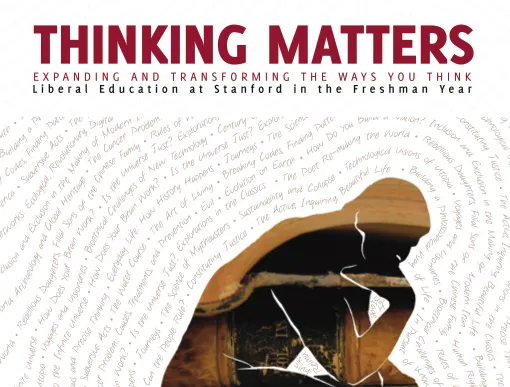Table of Contents
Rachel Maddow, television host, author, LGBT advocate, and Stanford alumna, returned to her alma mater on March 16 for the first time since graduating to give a lecture in Memorial Auditorium about her book, Drift: The Unmooring of American Military Power. The talk, which also dealt with the importance of a humanities education and her advice for young gay people struggling with their sexuality, was hosted by the Stanford Center for Ethics in Society and featured a conversation between Maddow and Professor Rob Reich.
Maddow began by describing her early life. She grew up in Castro Valley, which elicited applause from the audience, which in turn elicited shock from Maddow. Her initial experiences upon arriving at Stanford were filled with doubt and feelings of inadequacy and alienation. She found fulfillment, though, working at the Center for AIDS Services in Oakland. This led to health policy internships and years spent as an activist working for change.
“I didn’t want to be a specialist and go into an industry,” Maddow said, “or a professor, or a policymaker. I wanted to make these people be better at what they do.”
Maddow’ advised, above all, to learn how to be persuasive. She attributes her success at this to stats classes she took as well as the Ethics in Society Honors Thesis program, which taught her to “apply the rigor of philosophical thinking to real-world problems” and be subject to assessment from her peers. She spent years of her life as an AIDS activist despite not knowing much about the science simply because she was determined to make a difference, and insisted anyone can do the same.
After describing her life, Maddow transitioned into the content of her book. She asserts that our military’s main problem is civilian alienation, echoing similar statements made by Stanford Professor Emeritus David M. Kennedy in his recent articles on the American military. This leads to a Congress hideously out of touch with the needs of our military, to the point where it forces tanks and nuclear weapons to be built that are both unneeded and unwanted by the Pentagon. Congressmen want to appear strong on national security and bring military contracting jobs to their districts, and thus always pass laws in favor of military expansion, a process Maddow refers to as “a whole big bucket of stupid.” The military thus received far more weapons than it has use for, causing us to search out new uses for them.
“Our country was not designed to be pacifist, but to be peaceable,” she said. The power to go to war is given to Congress so that it is intentionally difficult to do. But when contractors, clandestine agencies, and predator drones make war easier to wage and do not require the consent of the public or the legislature, America stands on shaky footing. The Bush-era tax cuts have been the American citizen’s only “burden” in these latest wars; far less than 1% of the population has been involved in actual combat. By distancing the public from the war, the government has deprived the public of the opportunity to act patriotically or democratically, which weakens America as a nation.
When asked why she decided to write the book, Maddow said, “I feel alienated from people who fought war in my name.” If there is to be sacrifice asked of Americans, all of America must realize it and feel it as well, to promote an engaged and involved populace.
Maddow also went into depth on her views regarding the importance of the humanities.
“For the communications industry I’m in, we need vessels and content,” she said. “There’s an analytical and cultural need for people good at art and good at facts and good at visualizing. We need good artists and writers. We need cultural creators.” She cited her own show, saying that they look for people who cannot only connect the dots but create them as well and noted that writing is the most important skill in the workplace.
She closed her talk on a personal note that has taken on more importance in the past week in light of the appeals to the Defense of Marriage Act and Proposition 8 before the Supreme Court now. In her freshman class at Stanford, she was one of only two outed homosexuals. Because of this, she feels it’s important for young LGBTQ people to come out. “You are changing the world incrementally by making it have one less secret,” she said. “People came out before you and paved the way. You owe an ethical debt to the universe and if you don’t pay it back it’ll kick your ass.”





